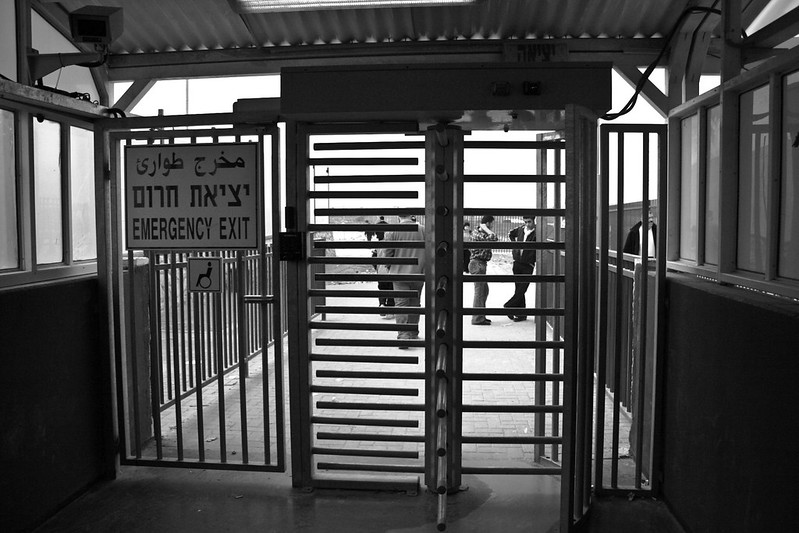Palestine 6. Photo by Magne Hagesaeter via Flickr (BY-NC-ND 2.0).
On the 6th of December, The United Nations Secretary General Antonio Guterres, invoked Article 99 of the UN Charter, urging the UN Security Council to act on the war in Gaza. But what is Article 99 and what does it mean, in reality?
What is article 99 of the UN Charter?
Article 99 of the UN Charter reads:
‘The Secretary-General may bring to the attention of the Security Council any matter which in his opinion may threaten the maintenance of international peace and security.’
Article 99 adds a political role to the Secretary-General’s functions under the United Nations Charter. In a lecture delivered in September 2001, the Secretary-General Kofi Annan acknowledged that Article 99
“makes [the Secretary-General] clearly a political rather than a purely administrative official” by requiring them to “act politically”.’
The article is seen as key to mobilising UN action, however, it is described as having a preventative role, rather than intervening directly. It is the only independent political tool given to the Secretary General and allows him to address the United Nations Security Council (UNSC) without being invited to, as is the case usually.
Guterres has been calling for an immediate ceasefire since the 18th of October, however, the UNSC has yet to adopt a resolution* calling for a ceasefire due to the US and Russian blocking various attempts.
*United Nations resolutions are formal expressions of the opinion or will of United Nations organs.
What can Article 99 actually do?
The 15 member UNSC is considered the UN’s most powerful body, tasked with maintaining international peace and security. IF it chooses to act on Guterres letter, and is in agreement, it will have additional powers:
1) to ensure a ceasefire resolution is implemented and,
2) the power to impose sanctions and deployment of international force.
However, it is worth noting that Article 99 does not give Guterres any powers to override or force the hand of the security council to adopt a resolution. The reality is that while Guterres can bring together the 15 members of the security council and encourage negotiation and compromise, the only way a substantive resolution can be adopted, is if all five permanent members of the security council (China, France, the US, the UK and Russia) do not veto it.
The US used their veto on the 18th of October to block a resolution that would have condemned Hama’s attack on Israel, while calling for a ‘humanitarian pause’ to allow some aid into Gaza. The UK and Russia abstained, while the other members voted in favour of the resolution.
Has Article 99 ever worked?
The unfortunate reality is that it has never brought lasting peace. According to Daniel Forti, a senior analyst on UN advocacy and research at the International Crisis Group, the Secretary General’s intervention does not ‘fundamentally change the political calculation of the UNSC’s most powerful members’. This means that while Guterres can apply pressure on the UNSC using Article 99, it will not change the power that the permanent members have when it comes to voting on resolutions. All it takes is one veto from a permanent member to derail any attempts at meaningful intervention.
As mentioned previously, the US has vetoed any resolutions so far and there is little to suggest that there has been any major shifts in their position in the meantime.
Israel’s ambassador to the UN, Gilad Erdan, responded by calling once again for the resignation of Guterres, stating
‘The secretary general’s call for a ceasefire is actually a call to keep Hamas’ reign of terror in Gaza.’
When has it been used before?
- In 1960, the then Secretary General, Dag Hammarskjold invoked article 99 when the Congolese government requested that the UNSC provide military assistance to protect against Belgian forces.
- The UNSC called for the release of 52 American hostages by Iranian militia at the US embassy in Tehran and restored diplomatic immunity in 1979 in Iran under Secretary General Kurt Waldheim.
- Secretary General Javier Perez de Cuellar invoked article 99 in 1989 in order to call for a ceasefire in Lebanon’s escalating civil war.
(Source: Al Jazeera)
It is also worth mentioning the criticism received by the UN for not invoking article 99 in the lead up to the Rwandan Genocide in 1994 where almost one million Rwandans were slaughtered in 100 days.


